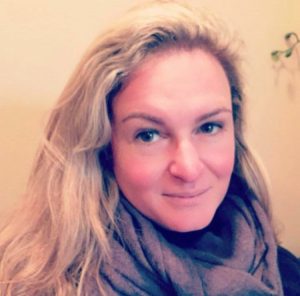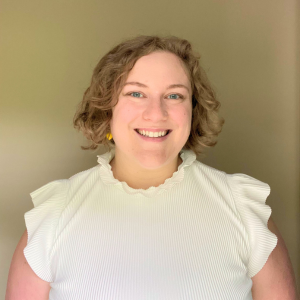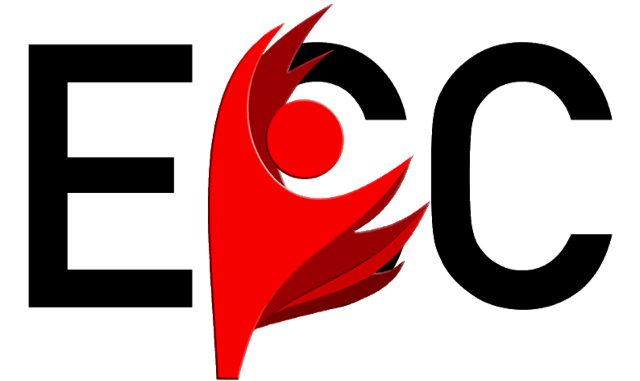Brain Injury Canada (formerly The Brain Injury Association of Canada) was formed in 2004 after a groundswell of advocacy and national activity by local brain injury associations, survivors and caregivers across the country. Everyone agreed that Canadians living with the effects of acquired brain injury, their families and caregivers, required national representation to connect and advocate for needs and services.
Mission
To empower and connect the brain injury community through education, advocacy and collaboration, creating lasting positive impacts.
Vision
A better quality of life for all people affected by brain injury in Canada.
Values
In all that we do, we will:
- Foster accessibility and inclusion for people affected by brain injury.
- Promote respect, empathy and compassion for different lived experiences.
- Cultivate knowledge and information sharing with integrity.
- Demonstrate responsibility and sustainability using evidence to inform policy and guide action.
Staff
Get to know Brain Injury Canada’s team.

Michelle McDonald
Chief Executive Officer
Michelle is an accomplished non-profit professional with over two decades of experience working in the sector in both Toronto and Ottawa. She brings a wealth of knowledge to any role she undertakes and has a proven record of growth in both revenue and reach for small organizations. As Chief Executive Officer of Brain Injury Canada, she has led the organization in a new strategic direction solidifying its position as a credible information source, knowledge mobilizer and ally for those with lived experience, families, the healthcare/service provider community, as well as the medical and research community. In addition to managing day-to-day operations, she also oversees the development of all Brain Injury Canada’s education and awareness programs, as well as advocacy initiatives. Her demonstrated focus on collaboration and partnerships gives her the ability to look at the big picture, but also all the moving parts and how they fit together effectively and efficiently. She currently sits on the Executive Committee for the Canadian Traumatic Brain Injury Research Consortium, the Accessibility Advisory Committee for the Canadian Transportation Safety Agency, the Executive Committee for the Canadian Concussion Network and is Co-Chair of the Governing Council for Neurological Health Charities Canada. Past roles include Executive Director at the Brain Injury Society of Toronto and in Health Promotion at the Heart and Stroke Foundation of Ontario. Past committee involvement includes Toronto ABI Network Planning Advisory Committee, Toronto ABI Network Concussion Task Force and Ontario Advisory Council (OAC) for the Ontario Acquired Brain Injury Community Associations.

Daniel Bourque
Director, Strategic Initiatives
“I’m excited to work with all interested parties to strengthen the brain injury sector for the benefit of those living with acquired brain injuries and their families.”
Daniel is a non-profit professional with over a decade of management, project, policy, and partnership-building experience.
As Director, Strategic Initiatives, he is working with brain injury associations across Canada to strengthen collaboration and the sector. He is also responsible for growing the policy and evaluation functions at Brain Injury Canada.
Most recently, he was Project & Policy Manager at New Brunswick’s largest animal shelter. His experience includes working as an adviser to senior government officials in complex policy environments (Veterans Affairs Canada, National Defence Canada, and New Brunswick’s Regional Development Corporation), as a non-profit management consultant, and as a volunteer program manager.

Garry Dillabough
Manager, Partnerships & Development
“Growing up with a sibling who continues to suffer the long term effects of a brain injury, I want to use my position to grow awareness and raise funds to provide desperately needed supports to survivors and their families within the Brain Injury Community.”
Garry joined the team in 2024 as Manager, Partnerships & Development, bringing with him close to a decade of relationship and community building experience.
As Manager, Partnerships & Development, Garry is focused on building and growing Brain Injury Canada by managing its existing partnerships and creating new funding opportunities to provide support and raise awareness for Brain Injury Canada and its mission. Garry began his career in sales and retention within the professional sports industry with the Ottawa Senators. He then transitioned to fundraising within the non-profit sector, working directly with donors and sponsors at the United Way East Ontario and Hospice Renfrew. Along with his work background, Garry brings several years of volunteer experience with non-profit organizations in his local community and throughout Eastern Ontario.

Rachel Newcombe
Manager, Education & Engagement
“I have family members with brain injury, and I grew up seeing how it impacts not just the individual, but the people around them. My goal is that everything we do provides more education and more awareness about brain injury, and fuels advocacy efforts of our organization, other organizations, and individuals in this space.”
Rachel joined Brain Injury Canada in 2019 as the content writer for our knowledge base resource website, and now manages the organization’s educational and engagement initiatives. This includes the planning and execution of programs such as the Foundations of Brain Injury e-course, website expansion, and Brain Injury Awareness Month campaigns. Rachel holds an honours degree from Bishop’s University in culture/media studies and journalism, and has several years of experience writing a variety of long and short-form content, as well as managing projects at all stages, using creative problem-solving to deliver informative, quality programs.

Teresa Kattackal
Policy and Knowledge Mobilization Analyst
“As someone who grew up alongside individuals living with brain injury, I have seen the ways in which brain injury impacts all facets of life. I am excited to continue to collaborate and hear the stories of individuals and groups within the brain injury community.”
Teresa joined the team in 2024 as Policy and Knowledge Mobilization Analyst. They will be working to advocate for the needs of people with brain injuries through improving policy. They hope to keep the Brain Injury Canada community informed about the resources, initiatives, and research that are relevant to people with brain injuries.
With a masters in Occupational Therapy, they worked as a case manager in outpatient psychiatry – helping patients continue to live in community, and to access mental health services and other supports. After that, they were an intervention worker in legal and immigration cases: accompanying clients to court dates, liaising with lawyers and legal clinics, and advocating for clients’ needs to be met. They care deeply about the well-being of their communities , connecting with community organizations and digging up the roots of oppression so that members of their community can be well.
Outside of work, you can find Teresa making multi-media art and stories, tending to their plants, and doing advocacy work in their local community.
More information about the organization
Brain Injury Canada’s Board of Directors are committed to the mission and values of our organization and are accountable for competent, conscientious and effective management of the organization, as well as responsible for governing the affairs of the organization within relevant legislation and regulations.
Our current Board of Directors includes:
- Xavier Linker – Co-Chair
- Graham Todd – Co-Chair
- Hafeeza Bassirullah
- Tanya DiPenta
- Tamiko (Tami) Hynes
- Sonali Kohli
- John McGowan – Non-voting
- Kai Olson
- Paul Rogers
- Annette Simms
Learn more about the members of the Board of Directors
Interested in applying to join our board? Read more here.
 Dan Andreae is an award winning professor, executive director, community leader and advocate, volunteer and citizen. He has been recognized in Canada and Marquis Whos Who has named him as Whos Who in the World.
Dan Andreae is an award winning professor, executive director, community leader and advocate, volunteer and citizen. He has been recognized in Canada and Marquis Whos Who has named him as Whos Who in the World.
Dan has a compelling interest in the brain and as the first Executive Director of the Alzheimer Society and later Chair of it’s Patrons Council he has played a key role in building up the society’s profile and by instituting innovative programs. For his many contributions he was awarded the Trailblazer Award by the Alzheimer Society and recognized with a special award by the International Alzheimer Society presented by Chair Princess Yasmin Khan.
He has had the honour of having a neuroscience laboratory named in his honour at the Weizmann Institute of Science, one of the world’s top research and educational institutions. Dr. Andreae represents Canada on the Weizmann International Board and in 2018 was awarded the Outstanding Leadership Award by Weizmann Canada. He is proud to be Honourary Patron of Brain Injury Canada and one 2016 was presented with a Lifetime Achievement Award by Brain Injury Canada.
For Dan life long learning is a passion and he had taught forty five subjects at university and college. He has been the recipient of the prestigious Distinguished Teaching Award at the University of Waterloo, made a Fellow of Renison University College at the university and has been Faculty of the Year twice at the University of Guelph Humber as well as being chosen for the Faculty Mentoring Award. In 2018 he was selected as Professor of the Decade by the International Association of Top Professionals and in 2020 was named Intellectual of the Year by the Top 100 Registry in New York City. Dan was awarded with an Honourary Doctorate of Laws for contributions to health care in 2008 from Assumption University in Windsor and in 2020 from Laurentian University in Sudbury.
Dr. Andreae has received the Governor General’s Caring Canadian Award and the Ontario Medal of Citizenship by the Lieutenant Governor. His other community involvements include serving on the Board of Governors of the Michener Institute, University Health Network, Health Advisor to the Psychology Foundation of Canada and Advisor to the Weizmann Institute as well as the National Eating Disorder Information Centre at Toronto General Hospital where he is Past Chair of their Advisory Committee as well as Past Chairs of the Canadian Abilities Foundation and Neuchâtel Junior College Advisory Committee, a Canadian school in Switzerland.
Brain Injury Canada’s team is growing. We’re looking for people dedicated to our mission of building advocacy, awareness, and education for and on behalf of the brain injury community. Currently we work as a remote organization, with team members across Canada working together to make a difference.
We are currently hiring for the following position(s):
Neurological Health Charities Canada (NHCC)
Brain Injury Canada is a proud member of NHCC. Neurological Health Charities Canada (NHCC) is a coalition of organizations that represent people with brain diseases, disorders and injuries in Canada. We work collaboratively to increase awareness, education and research and improve diagnosis, treatment and supports to benefit people affected by brain conditions. Michelle McDonald, ED of Brain Injury Canada is the new Chair of the Governing Council.
Website: mybrainmatters.ca
Every Canadian Counts (ECC)
Brain Injury Canada is a partner with Every Canadian Counts, a coalition committed to improving services for the over 1.9 million Canadians living with long-term, chronic disabilities. ECC recognizes the urgent need to provide for these Canadians, and their families, as many do not have access to even the most basic supports and services.
Website: everycanadiancounts.com
Disability Tax Fairness Alliance
The purpose of this alliance is to obtain change by raising awareness among elected officials and policy-makers of the urgent need to ensure that the administration of the Disability Tax Credit (DTC) and other disability/infirmity measures reflects the intent of Parliament, the interpretation of the Income Tax Act by the Tax Court of Canada and the values of our society.
Our strategic plan lays out the path the organization is planning to take in the coming years.

